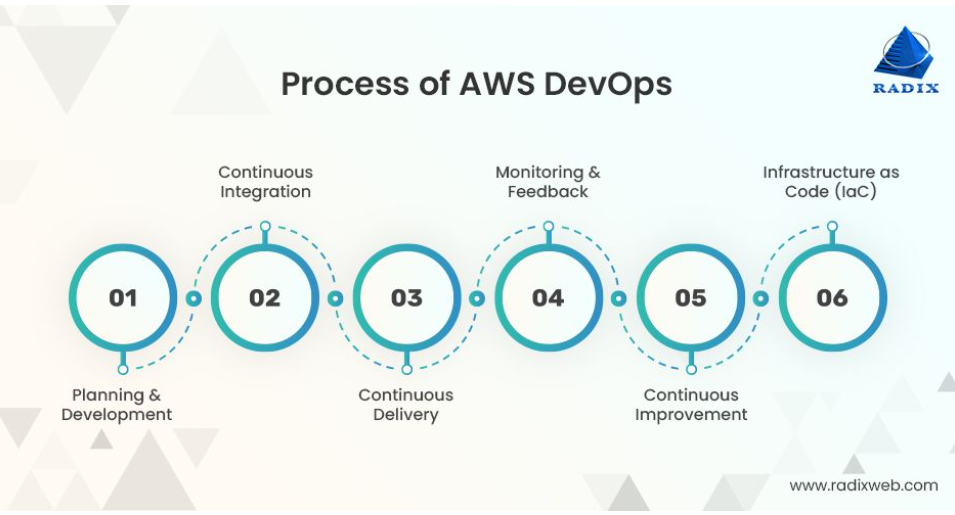In the development of a new product, process, or platform, there’s a business adage that goes something like this: You can make two of the following three demands: good, fast, or cheap. But it’s nearly impossible to have them all.
This brings us to DevOps. Quite possibly the secret to getting all three.
What Is DevOps?
Short for Development Operations, Amazon Web Services (AWS) defines DevOps as the combination of cultural philosophies, practices, and tools that increase an organization’s ability to deliver applications and services at high velocity. In short, faster than fast.
By evolving and improving products at a faster pace than organizations using traditional software development and infrastructure management processes, organizations are better able to serve their customers and compete more effectively in the market.
DevOps in Action
Per AWS, under a DevOps model, development and operations teams are no longer “siloed.” Often these two teams are merged into a single unit where engineers work across the entire application lifecycle. From development and testing to deployment to operations, the combined teams develop a range of skills not limited to a single function.
In some models, quality assurance and security teams may also become more tightly integrated with development and operations throughout the application lifecycle.
Teams use practices to automate processes that historically have been manual and slow—not to mention costly. Technology stacks and tooling help team members operate and evolve applications quickly and reliably.
These tools also help engineers independently accomplish tasks (e.g., deploying code or provisioning infrastructure) that normally would have required help from other teams, further increasing a team’s velocity.
How You Can Benefit From DevOps
DevOps best practices include continuous integration, continuous delivery, microservices, infrastructure as code, monitoring and logging, and communication and collaboration.
By following these practices, AWS notes that several ways adopting a DevOps philosophy can help your company, including:
- Operate and respond faster: Moving effectively at high velocity enables you to innovate for customers faster, adapt to changing markets better, and grow more efficient at driving business results.
- Rapidly improve your product: By increasing the frequency of new versions, you can release new features and fix bugs. By improving your product faster, you respond to your customers’ needs and cement a competitive advantage.
- Achieve reliable delivery: Ensuring the quality of application updates and infrastructure changes lets you reliably deliver more rapidly while maintaining a positive experience for end users.
- Manage development at scale: Automation and consistency help you manage complex or changing systems efficiently and with reduced risk. Which aids in managing development as you scale.
- Improve collaboration: Under a DevOps model, you’re able to build more effective teams. Values such as ownership and accountability are fostered.
- Maintain security: You can adopt a DevOps model without sacrificing security by using automated compliance policies, finely tuned controls, and configuration management techniques.
All of which leads to outcomes that are high velocity (fast), at higher quality (good), and less costly (cheap).
DevOps in AWS

AWS’s Infrastructure as a Service (IaaS) is the perfect place to implement DevOps principles.
- Planning: By properly planning, and aligning on what requirements will be needed, you make the rest of the process simpler.
- Continuous Integration: By using continuous integration, developers can code and it’s automatically merged. You can code in one branch, and keep the main one up to date.
- Continuous Delivery: This lean practice aims to make it as efficient as possible to launch applications.
- Monitoring and Feedback: Automatically monitor and provide feedback on application status. By implementing automatic monitoring you improve efficiencies and reduce downtime.
- Continuous Improvement: This practice keeps your environment stable and it improves the reliability of the apps that you’re deploying.
- IaC: IaC can better support your infrastructure. It also supports development teams to deliver applications better with a unified set of tools and practices.
At StratusGrid, for every modernization project we undertake, we apply DevOps principles. We have found that they improve agility, efficiency, security, and client satisfaction.
To find out more about why AWS is the ideal structure for DevOps, read more in our article, "Why AWS for DevOps?"
How StratusGrid Complements AWS DevOps
StratusGrid helps maximize your cloud usage—and minimize your cloud costs—through tailored software solutions. Among the ways we do this are through cloud migration, modernization, stabilization, and cost optimization. As a certified AWS Consulting Partner, we embrace the power of automation and DevOps practices.
We integrate automation into every stage of our migration process, streamlining operations, reducing errors, and accelerating deployment. Our commitment to DevOps principles ensures that your applications and workloads are optimized for the best cloud performance, agility, and scalability.
With 10+ years of experience in AWS cloud migrations, we’ve successfully executed numerous migration projects, helping organizations seamlessly transition to the cloud. We specialize in helping enterprises and private equity firms in the following industries:
- Media and entertainment
- Supply chain logistics and advanced manufacturing
- Health and finance tech
Learn How StratusGrid Can Help Your Company Optimize Its Cloud Costs
Embrace the full potential of AWS DevOps with StratusGrid by your side. Our expertise in cloud optimization and DevOps practices ensures your business not only transitions smoothly to the cloud but also thrives there. Ready to elevate your cloud journey?
Book a free AWS consultation with a StratusGrid expert to find out how we can help you to set DevOps principles into practice and reduce your cloud spend.
BONUS: Find Out if Your Organization is Ready for The Cloud ⤵️
